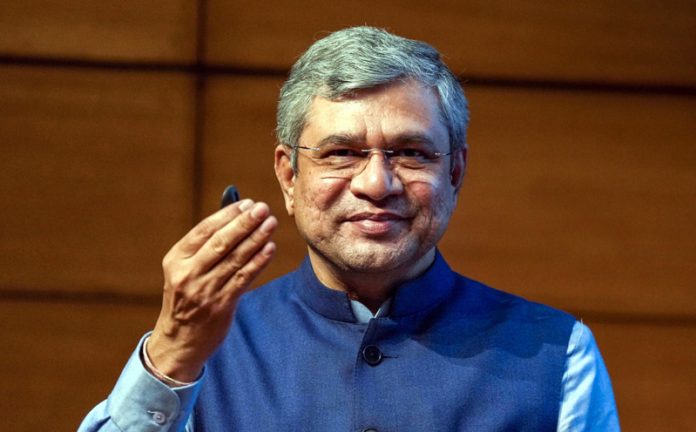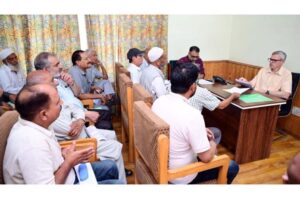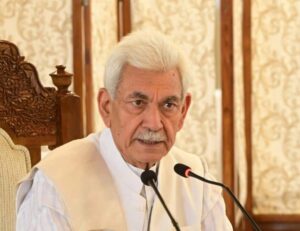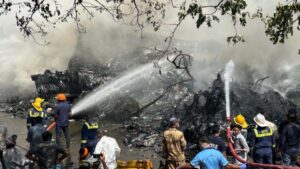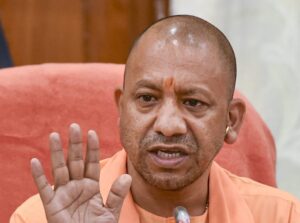



Union Minister for Railways and Information & Broadcasting, Ashwini Vaishnaw, on Wednesday asserted that Pakistan no longer poses a threat to India and that terrorism, in any form, is completely unacceptable. He also emphasized that Indian citizens across the globe now feel safer—reflecting the significant transformation the country has undergone during the 11 years of Prime Minister Narendra Modi’s leadership.
Vaishnaw made these remarks while addressing a press conference held to mark the completion of 11 years of the Narendra Modi Government at the Centre. The event was attended by key Union Ministers including Defence Minister Rajnath Singh, BJP National President and Health Minister JP Nadda, and Road Transport and Highways Minister Nitin Gadkari.
Highlighting key milestones of the Modi Government, Vaishnaw said, “Nobody had imagined that Article 370, which gave special status to the erstwhile state of Jammu and Kashmir, could be abrogated. But the Modi Government did it with resolve.” He added that sincere and effective actions have been taken against left-wing extremism, insurgency in the North-East, and cross-border terrorism.
Referring to India’s strong military responses, he noted the surgical strikes in 2016, air strikes in 2019, and the recent Operation Sindoor (2025) as clear demonstrations of India’s growing power, now recognized globally. “These operations have targeted only terrorist infrastructure and were conducted using indigenous defence technologies,” he said, underlining India’s emergence as a major defence exporter.
The Minister stated that the Red Corridor, once severely affected by Maoist violence, has now been reduced to just a few districts, signaling improved internal security.
Recalling his recent visit to Jammu for the inauguration of train services to Katra and the world’s highest railway bridge over the Chenab River, Vaishnaw said, “When I asked a constable of the Jammu and Kashmir Police about the changes after the abrogation of Article 370, he confirmed that the situation has significantly improved.” He further stated that residents in Srinagar have expressed a desire to return to the relatively peaceful days before the terror attack of April 22.
The April 22 terror attack at Baisaran, Pahalgam claimed the lives of 26 civilians, including 25 tourists and a local. In response, the Indian Armed Forces launched Operation Sindoor from May 6 to 10, targeting terror camps and military installations in Pakistan and Pakistan-occupied Jammu and Kashmir (PoJK), reportedly eliminating a large number of terrorists. In retaliation, the Pakistan Army shelled civilian areas in Poonch, Rajouri, Uri, Tangdhar, and other sectors.
A booklet released during the presentation highlighted that no major terror attacks have occurred in non-conflict zones of India since 2014. It credited the Modi Government’s strategic and legal responses, including amendments to the Unlawful Activities (Prevention) Act (UAPA) and India’s proactive role in global counter-terrorism efforts.
On the defence manufacturing front, Vaishnaw noted the government’s commitment to self-reliance. “Over 5,000 items, including major weapons and systems, have been placed on positive indigenisation lists, which India will no longer import,” the booklet stated. Furthermore, over 4,600 items for Defence Public Sector Undertakings (DPSUs) have been identified to be sourced domestically.
The Foreign Direct Investment (FDI) limit in the defence sector has been increased to 74% via the automatic route, and in the 2025–26 Union Budget, 75% of the defence capital procurement budget has been earmarked for domestic industries. Special incentives are also being rolled out for the development of defence corridors in Uttar Pradesh, aimed at transforming economically backward regions into defence manufacturing hubs.
The presentation concluded with a strong message: India’s defence, security, and global standing have strengthened significantly over the last 11 years under Prime Minister Modi’s leadership.



